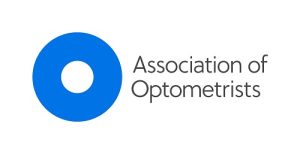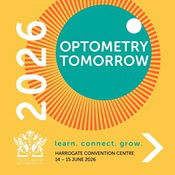General News
Initial responses to Government’s reform plans for elective care
 AOP responds to Government’s reform plans for elective care
AOP responds to Government’s reform plans for elective care
NHS England and Government announces ambitious new plans to reduce hospital waiting times and speed up diagnosis and treatment
The Association of Optometrists (AOP) has welcomed new plans announced by NHS England and the Government to cut waiting lists for patients by shifting care from hospitals to community, but called for primary care to be ‘fully utilised’ as a core part of healthcare reform.
Under the Elective Reform Plan, millions of patients are set to receive faster diagnosis and treatment, working to a target of delivering routine care to nine in 10 patients within 18 weeks.
Within the plan, key objectives include empowering patients with better data and choice, redesigning pathways, and increasing advice and guidance that supports the prevention of ill health.
 Responding to the plans, Adam Sampson, AOP Chief Executive said: “We are encouraged by the Government’s clear commitment to tackling the backlog and improving overall access to elective care and treatment.
Responding to the plans, Adam Sampson, AOP Chief Executive said: “We are encouraged by the Government’s clear commitment to tackling the backlog and improving overall access to elective care and treatment.
“One in 11 people in England are on an NHS waiting list for a hospital eye appointment, which is the second largest of all outpatient appointments. We know only too well the impact that the wait can have on patients who risk losing their sight because the delay to diagnosis or treatment is simply too long.
“That’s why we have long called for action that will create efficiency in the NHS and better outcomes for patients through our national Sight won’t wait campaign.
“Optometrists on the High Street have the clinical skills and experience, the premises and the equipment to deliver high-quality eye care, accessed locally. The PA Consulting report we commissioned demonstrates that existing clinical interventions in High Street optometry can release at least 2m appointments for other areas of NHS healthcare, such as GPs and A&E, alongside creating significant cost savings.
“We welcome the Government’s commitment to reform and investment, and hope to see that commitment mirrored in the upcoming 10 Year Plan for Health. It is essential that primary care, including High Street optometry, pharmacy and dentistry as well as general practice, is fully utilised as part of the Government’s wider shifts from hospital to community, from analogue to digital, and from a sickness to a prevention-based healthcare model.”
Dr Peter Hampson, AOP Clinical and Policy Director said: “We look forward to reviewing the detail underpinning the Government’s plan. We support the ongoing shift to care in the right place, but it will be important to understand what “more integrated working between primary and secondary care, community, diagnostics, tertiary centres and the independent sector” will look like – including digital solutions, as well as the time and investment required to ensure change is productive and sustainable.
“We recognise that community diagnostic centres and surgical hubs can add more capacity, but within eye care we urge NHS England to start by using the untapped potential of High Street optometry.
“The stated aim that NHS England will ensure both primary care and secondary care are funded to deliver advice and guidance by splitting the existing elective tariff to deliver better outcomes for patients is another area in which we will be looking for more detail.”
 Specsavers Response
Specsavers Response
Ministers urged to expand community optometry and audiology for benefit of patients NHS services
MINISTERS are being urged to expand community optometry and audiology NHS services after the prime minister set out his latest NHS plan.
While the announcements largely focus on consultant-led elective care, Specsavers clinical services director Giles Edmonds welcomed the Prime Minister’s plan and called for the Government to show the same ambition to expand access to primary and community care services.
 Mr Edmonds highlighted how the sector already plays an important role in delivering NHS services in the community but is ready and able to do even more to change lives.
Mr Edmonds highlighted how the sector already plays an important role in delivering NHS services in the community but is ready and able to do even more to change lives.
‘If the government wants to cut NHS waiting lists, we can help,’ he says. ‘We already have hundreds of community-based practices offering diagnostic services on the high street. Let’s not miss the opportunity to help hundreds of thousands of people waiting for hospital eye care by treating more in the community.’
He was speaking after the Prime Minister Sir Keir Starmer this week unveiled a plan to reduce NHS waiting lists for elective surgery and reinforce patient choice in England. The Westminster government has also set out three shifts for the NHS in England of illness to prevention, hospital to community and analogue to digital.
‘We welcome the announcement and the government’s commitment to working with the independent sector to tackle waiting list for elective care. We now need to see the same ambition in working with primary and community care providers to improve access to care,’ adds Mr Edmonds.
‘Specsavers’ hundreds of practices across England are staffed by experts in eye and hearing care dedicated to serving their communities. They already deliver important NHS services and have the skills to do more, supporting and collaborating with colleagues in secondary care. We also use hospital-grade equipment to care and treat our patients.’
He adds: ‘Specsavers will continue to make the case to government that now is the time to improve access to care for patients in England by fully utilising the workforce in community optics and hearing care.
‘Developments in Scotland and Wales also provide examples of how extending such services can deliver benefits.’
College of Optometry
 College of Optometrists responds to Government’s reform plans for elective care
College of Optometrists responds to Government’s reform plans for elective care
The College of Optometrists welcomes the Government’s commitment to ensure patients receive the care they need at the right time and the right place.
Currently, 600,000 people are on NHS waiting lists to begin treatment for ophthalmology in England, making ophthalmology one of the largest contributors to the NHS backlog; and this number is only set to grow with an ageing population. Delays to treatment can have devastating consequences for individuals, families, communities, and the nation. Patients on long waiting lists are losing their sight unnecessarily.
The College of Optometrists is pleased to see the Westminster government agrees with our priorities, including:
- empowering patients to choose when and where they receive the care they need
- ensuring they receive their care from skilled healthcare professionals in the right setting
- improving access to tackle health inequalities
- optimising clinical pathways to shift care from hospital to community
- using digital and data to facilitate more effectively clinical and operational decisions
- aligning funding to meet growing patient need
The College has long called on the government and NHS England to deliver these changes as soon as possible to help reduce unnecessary sight loss as outlined in our manifesto for change.
Primary care optometrists have the core clinical skills and equipment required to provide more NHS eye care services in England than most are currently commissioned to do. They can deliver safe and timely eye care to all patients closer to home, helping to reduce the reliance on local GPs, cut NHS ophthalmology waiting times and enable more people to live independently with the best vision possible.
The College of Optometrists calls on the government and NHS England to ensure the reform plan for elective care is effectively and urgently implemented for the benefit of eye care patients and the wider NHS.
























